“Eat Right, Feel Bright: A Healthy Diet for Jaundice Patients”
Overview
Jaundice is caused by an excess of bilirubin in the body. Jaundice patients need to follow a healthy diet to help their bodies recover.
A diet for a jaundice patient should include foods that are high in protein, low in fat, rich in vitamins and minerals, easy to digest, and low in sugar.
Let us have a closer look at this:
What is Jaundice?
Jaundice is the yellowing of the skin and eyes caused by an excess of bilirubin in the body. 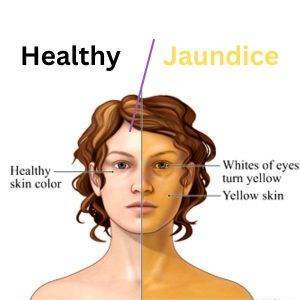 Bilirubin is a yellow pigment that is produced when red blood cells break down. It is normally processed by the liver and excreted in the bile.
Bilirubin is a yellow pigment that is produced when red blood cells break down. It is normally processed by the liver and excreted in the bile.
When the liver is unable to process the bilirubin, it builds up in the bloodstream and causes the skin and eyes to take on a yellowish hue.
How does it cause?
Jaundice can be caused by a variety of conditions, including liver disease, gallstones, and certain infections.
It can also be caused by an incompatibility between a mother and her newborn baby, known as neonatal jaundice. In this case, the baby’s body is unable to process the bilirubin, leading to a buildup in the bloodstream.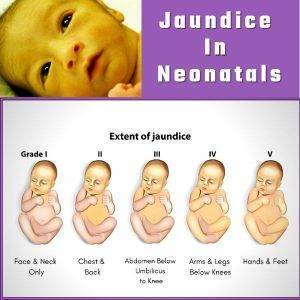 Jaundice can be a serious condition, seek medical attention if you or your baby are exhibiting signs of jaundice.
Jaundice can be a serious condition, seek medical attention if you or your baby are exhibiting signs of jaundice.
It can be treated by phototherapy, which uses light to break down the bilirubin, or a blood transfusion.
In some cases, medications may be prescribed to help the liver process the bilirubin.
Increase Intake of Nutrients
Jaundice patients need to ensure they are getting enough nutrients to help their bodies heal and recover.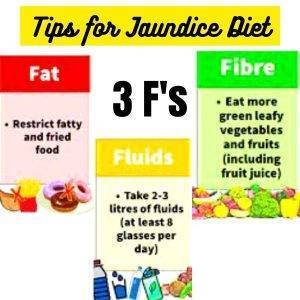 Here are some tips for increasing nutrient intake:
Here are some tips for increasing nutrient intake:
1. Eat a balanced diet: Eating a balanced diet is essential for jaundice patients like a variety of foods from all the food groups including
- Fruits
- Vegetables
- Whole grains
- Lean proteins
- Healthy fats
Eating a variety of foods will ensure that the body is getting all the essential vitamins and minerals it needs.
2. Choose nutrient-dense foods: Nutrient-dense foods are those that are high in vitamins and minerals but low in calories like dark leafy greens, legumes, nuts, and seeds.
Eating these foods will help ensure that the body is getting the nutrients it needs without consuming too many calories.
3. Avoid processed foods: Processed foods are often high in calories and low in nutrients. Best to avoid these foods as much as possible and focus on eating whole, unprocessed foods.
4. Take supplements: If a jaundice patient is unable to get enough nutrients from their diet, they may want to consider taking supplements.
Supplements can help fill in any nutritional gaps and ensure the body gets all the nutrients it needs. Many Supplements are available online but do not forget to consult your doctor before taking any supplement.
Benefits of Eating Fruits and Vegetables for Jaundice Patients
Fruits and vegetables are packed with essential vitamins and minerals that can help to improve the overall health of patients.
- Fruits and vegetables are rich in antioxidants, which can help to reduce inflammation and protect the body from oxidative damage.
This can help to reduce the symptoms of jaundice, such as yellowing of the skin and eyes.
- The antioxidants in fruits and vegetables can help to boost the immune system, which can help to fight off any infections that may be causing jaundice.
- Fruits and vegetables are also great sources of fiber, which can help to improve digestion and reduce the risk of constipation.
- Constipation is a common symptom of jaundice, and eating more fiber can help to reduce this symptom.
- Fruits and vegetables are low in calories and fat, which can help to reduce the risk of weight gain.
Weight gain can worsen the symptoms of jaundice, so eating more fruits and vegetables can help to keep weight in check.
Best Sources of Protein for Jaundice Patients
For jaundice patients, the best sources of protein are those that are easily digestible and low in fat.
- Lean meats such as chicken, turkey, and fish are excellent sources of protein that are low in fat and easy to digest.
- Eggs, tofu, and legumes such as beans, lentils, and peas are also good sources of protein that are low in fat and easy to digest.
- Dairy products such as yogurt, cheese, and milk are also good sources of protein but should be consumed in moderation due to their higher fat content.
In addition to these sources of protein, jaundice patients should also focus on eating a balanced diet that includes plenty of fruits and vegetables.
Eating a variety of nutrient-rich foods can help to support the body’s natural healing process and provide the necessary nutrients for recovery.
Benefits of Eating Whole Grains for Jaundice Patients
 Whole grains are a great source of dietary fiber, which can help to reduce the amount of bilirubin in the body.
Whole grains are a great source of dietary fiber, which can help to reduce the amount of bilirubin in the body. - Fiber can also help to improve digestion, which can be beneficial for jaundice patients who may be experiencing digestive issues.
- Whole grains are also a great source of B vitamins, which can help to boost energy levels and improve overall health. B vitamins can also help reduce fatigue, a common symptom of jaundice.
- Eating whole grains can also help to reduce inflammation, which can be beneficial for jaundice patients who may be experiencing inflammation in the liver.
- Whole grains are also a great source of antioxidants, which can help to protect the body from free radical damage.
- Whole grains help to reduce cholesterol levels, which can be beneficial for jaundice patients who may be at risk of developing heart disease.
- Eating whole grains can also help to reduce the risk of developing type 2 diabetes, which is another common complication of jaundice.
Foods Should Be Avoided If You Are Suffering From Jaundice
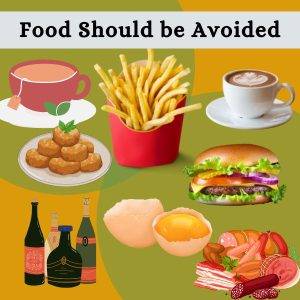 When suffering from jaundice, avoid certain foods that can worsen the condition. These include
When suffering from jaundice, avoid certain foods that can worsen the condition. These include
- Foods that are high in fat, sugar, and cholesterol, as well as processed and fried foods.
- Alcohol should also be avoided, as it can increase the risk of liver damage.
- Foods that are high in iron, such as red meat, should be avoided, as they can cause further damage to the liver.
- Foods that are high in sodium, as this can cause dehydration and worsen the symptoms of jaundice.
- Caffeinated beverages, such as coffee and tea, should also be avoided, as they can increase the risk of dehydration.
- Avoid foods that are high in vitamin A like egg yolks, and dairy products, as this can cause further damage to the liver.
By avoiding these foods, those suffering from jaundice can help to reduce the severity of their symptoms and improve their overall health.
FAQ’s
Q: What should a jaundiced patient eat?
A: One should consume bland foods, such as white rice, boiled eggs, and boiled chicken.
Q: Which juice is best for jaundice patients?
A: Juice that is high in vitamin C like grapefruit, orange, and pineapple are the best for jaundice patients.
Q: What foods should a jaundiced patient avoid?
A: Some foods to avoid if you have jaundice include: raw or undercooked meat, raw fruits and vegetables, fermented foods, such as kimchi, and pickles, alcohol, caffeine, tap water fermented dairy products, such as yogurt etc.

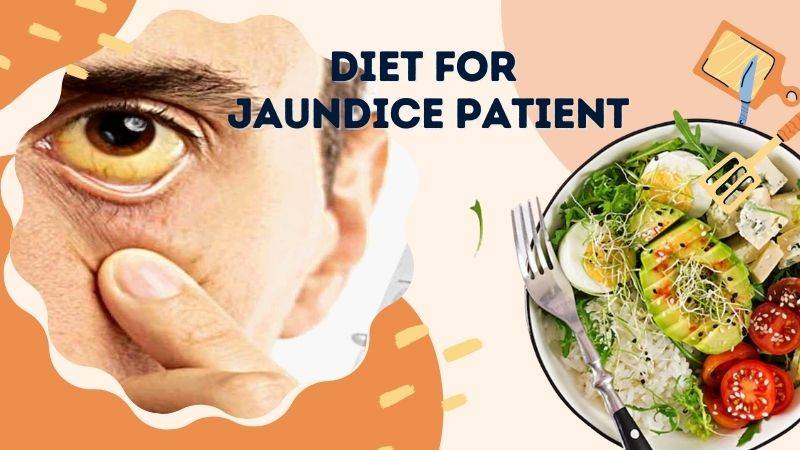
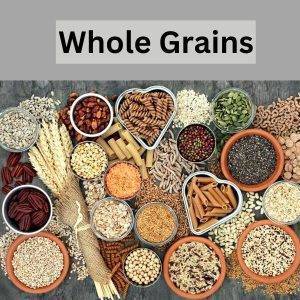 Whole grains are a great source of dietary fiber, which can help to reduce the amount of bilirubin in the body.
Whole grains are a great source of dietary fiber, which can help to reduce the amount of bilirubin in the body. 



